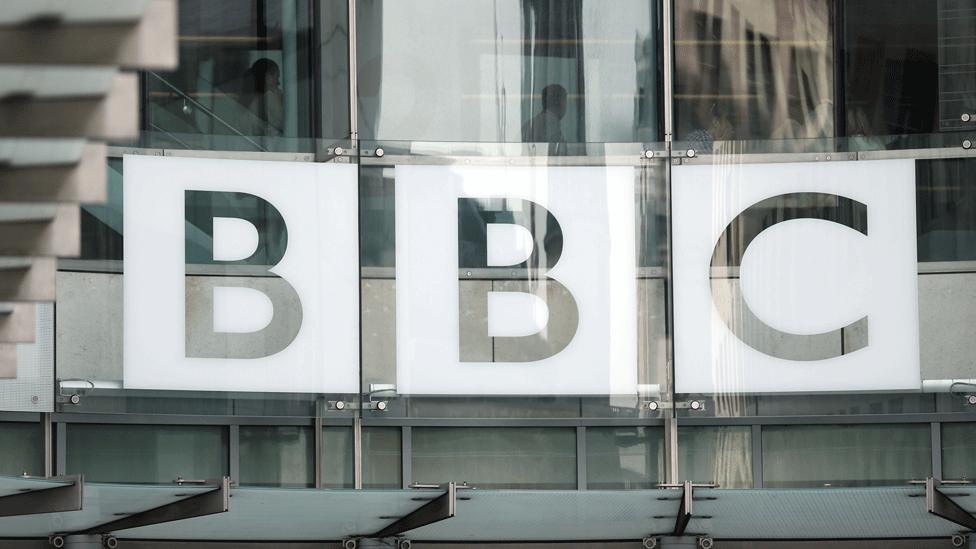BBC Scotland news and radio coverage reviewed by trust
- Published
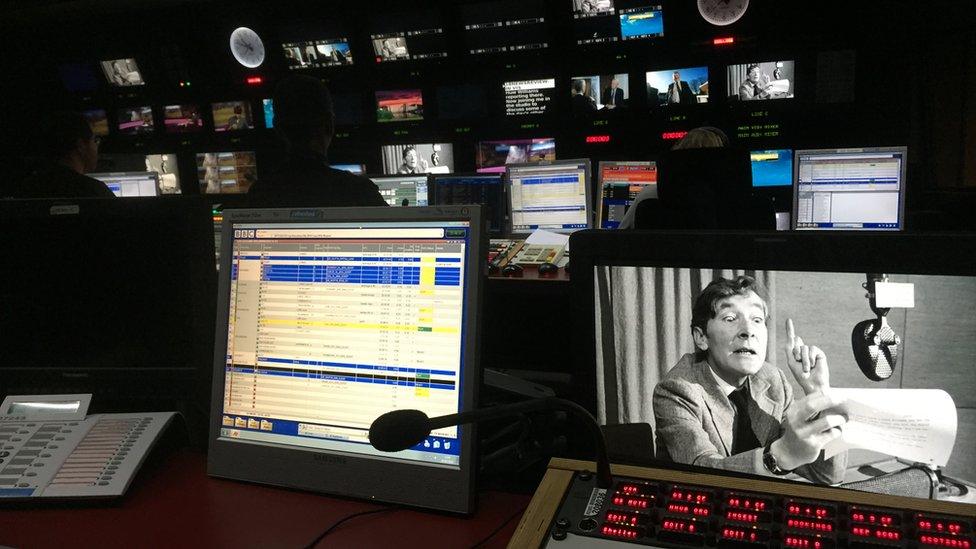
The report examined the news and current affairs offering in Scotland, Wales and Northern Ireland
Audiences in Scotland tend to have a lower opinion of the BBC than in other UK nations, a BBC Trust review into news and radio services has found.
The trust's nations service review said its Scottish consultation included a "wide range of strong opinions", many of them "highly critical".
However, the report also said that most people were happy with BBC news and current affairs coverage in Scotland.
The review also looked at services in Wales and Northern Ireland.
In Scotland, the BBC Trust examined news and current affairs on television and online, as well as BBC Radio Scotland and the Gaelic services BBC Radio nan Gaidheal and BBC ALBA.
Impartiality and fairness
The review found that BBC Scotland's television news performed strongly in terms of reach and quality, with more than half of adults in Scotland watching it each week.
Among those, eight out of 10 agreed it was informative and seven out of 10 viewers said it was high quality and relevant to them.
Qualitative research carried out by the trust found "very high levels of satisfaction with the quality and trustworthiness of BBC news", but concerns were raised around impartiality and fairness by some.
The review goes on: "But there is clearly no consensus: criticisms were made that the BBC was pro-nationalist and pro-unionist. Some respondents praise the BBC for maintaining impartiality across its television output."

There were protests outside BBC Scotland's HQ during the 2014 independence referendum
The BBC Trust's report also said perceptions of news coverage in Scotland had been affected by the Scottish independence referendum in September 2014, with the public's "general impression" of BBC News in Scotland dropping significantly from 2013 - when it was in line with the UK average.
The report adds: "It has subsequently risen and has throughout the period been at a fairly positive level, but it has not recovered to its previous level and remains below the UK average."
BBC Trustee for Scotland Bill Matthews said: "It is clear from this review that Scottish audiences value the BBC, but the BBC has to rise to the challenge of representing Scottish life as it is today.
"We are pleased that the BBC recognises nations' programming, particularly an appropriately relevant mix of news and current affairs, as a priority for the next charter period and we have recommended there should be an annual assessment of how well they are meeting audience expectations in this area."
Some of the criticisms levelled at BBC Scotland by respondents to the public consultation include dissatisfaction with the "balance of output" from BBC news overall, with too much emphasis on stories that were relevant only to audiences in England.
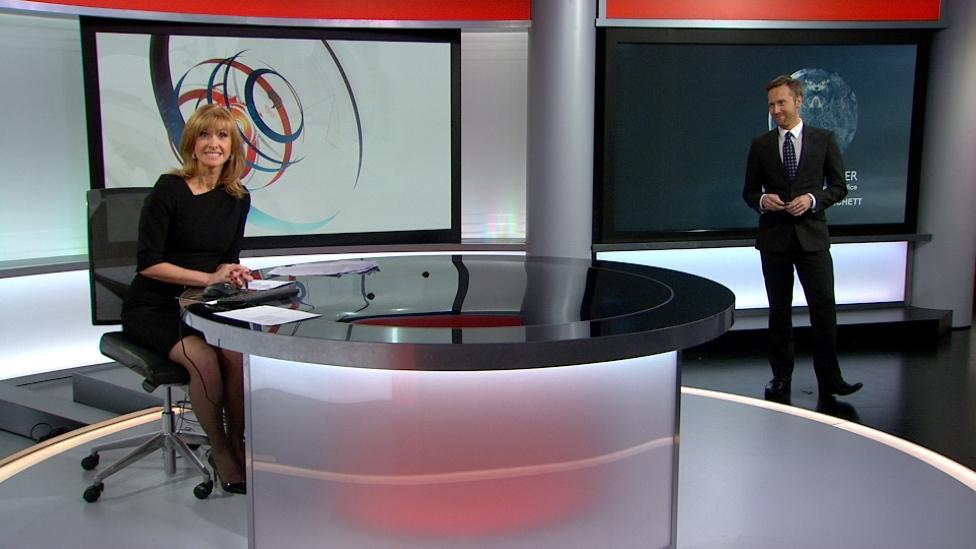
A "Scottish Six" programme is being considered by BBC Scotland
But the trust said it recognised the BBC was "actively considering" how it should service audiences in the nations across the UK.
In Scotland, this includes a possible "Scottish Six" programme, which would replace the current offering of the network Six O' Clock News and Reporting Scotland.
BBC Scotland is also considering a split frequency for Radio Scotland.
News, current affairs and sport would be offered on a service available on FM, digital and online, with arts, music and culture on a second service available only on digital and online.
However, the trust noted that the industry body for commercial radio, RadioCentre, external, had "expressed concern" over the idea because of its "potential competitive impact".
No formal proposal has been made to the BBC Trust yet.
The trust's review of the Gaelic language services found that BBC Radio nan Gaidheal and BBC ALBA both had "loyal" audiences and were "highly valued" by native speakers.
Balance of news
BBC Radio nan Gaidheal has a claimed reach of 69% of Gaelic speakers, with BBC ALBA at 75%.
However, the trust said the BBC needed to consider how its services for indigenous minority language speakers should evolve in the future once licence fee funding was finalised.
A BBC Scotland spokesman said: "We're heartened to hear our audiences rate our services highly and that in TV news for example eight out of 10 agree it is informative and seven out of 10 say it is high quality and relevant to them.
"We recognise, however, that audience expectations of BBC News are extremely high and there are also some areas of concern such as the balance of news from Scotland and England.
"We outlined some months ago that the BBC is actively considering how it should best serve audiences in Scotland in News and whether we need to make any changes to our existing output. That work is ongoing and we expect to announce the findings later this year."
- Published2 August 2016
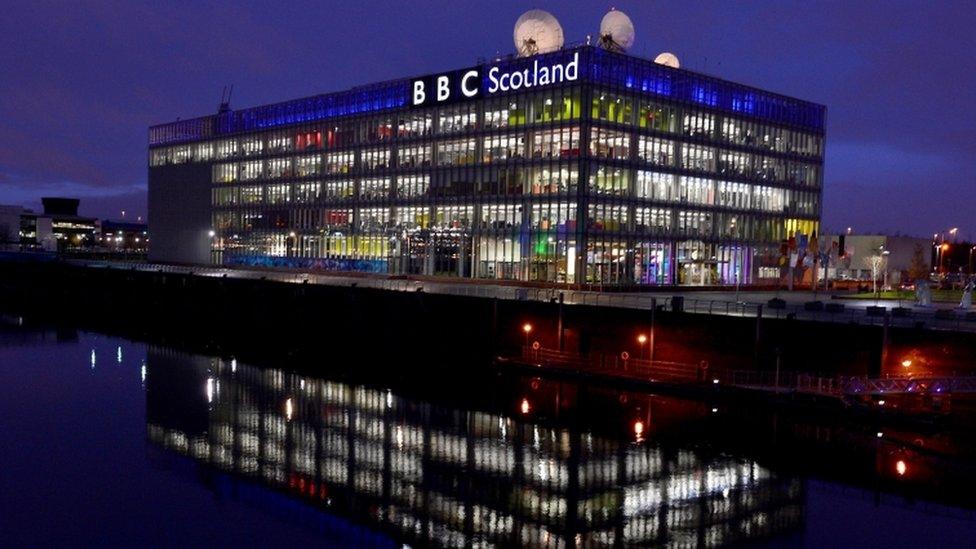
- Published12 January 2016
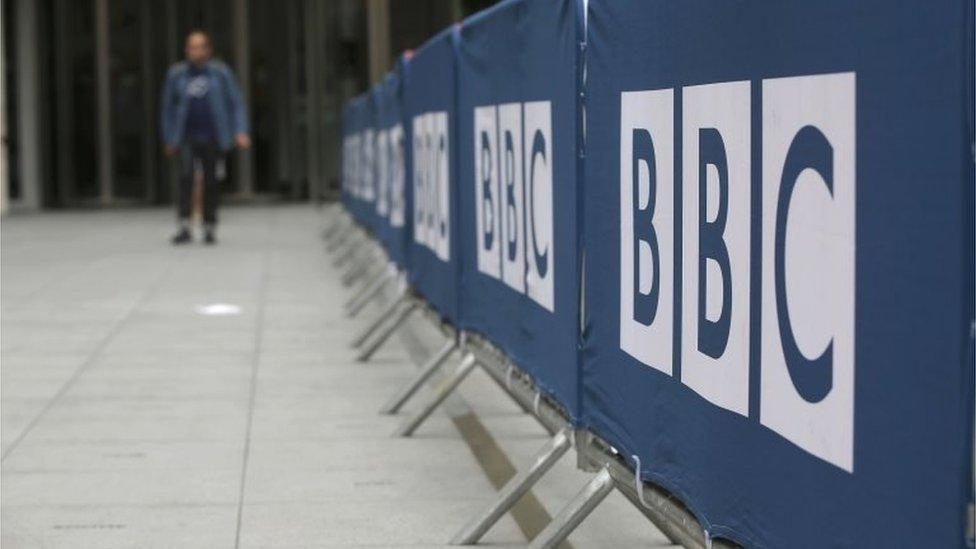
- Published12 January 2016
